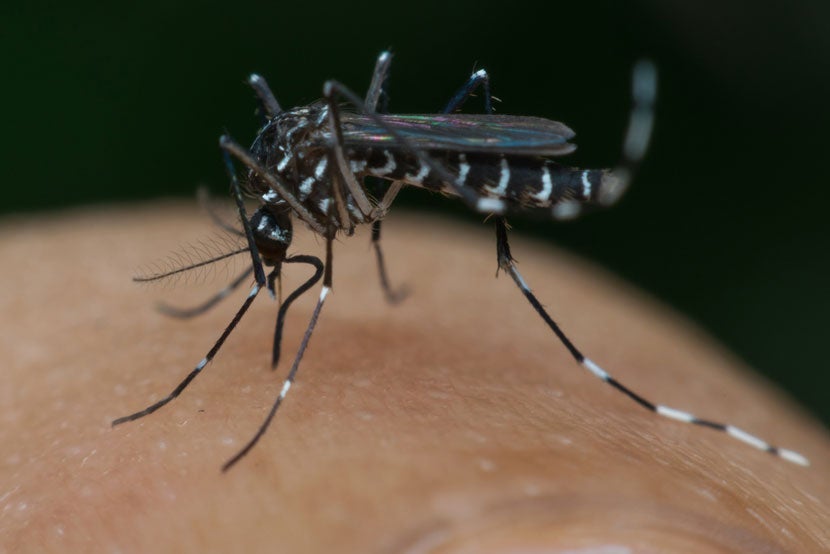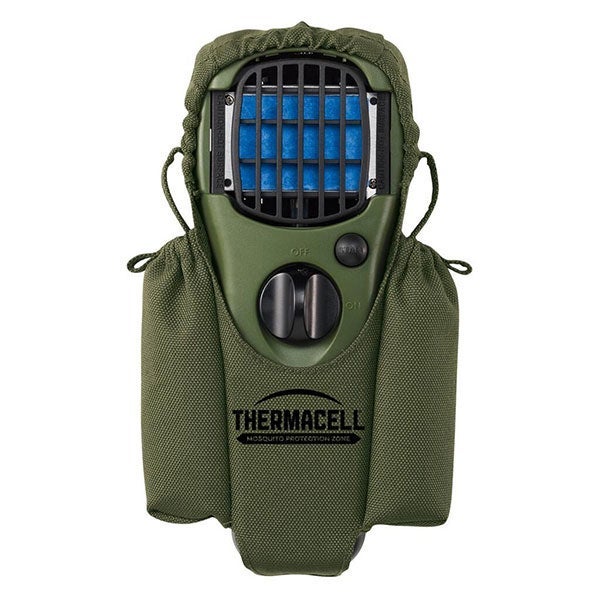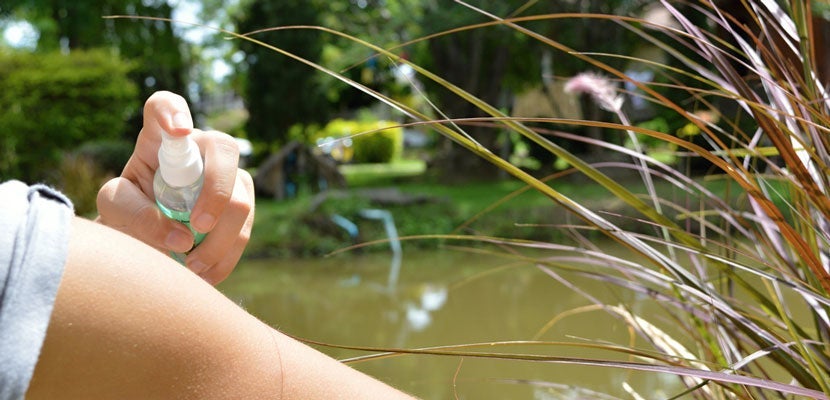5 Easy Ways to Zika-Proof Your Travels
TPG Contributor Alex Pasquariello outlines five simple steps you can follow to protect yourself from Zika Virus in tropical destinations — and in your own backyard.
Enter the Dog Days of Zika, this summer's long, hot slog against our old arch nemesis, Aedes Aegypti, once the destroyer of empires, armies and in modern times, a threat to mankind's finest athletes at the 2016 Summer Games. This is the same sucker, by the way, that spreads yellow fever, dengue and chikungunya — in fact, of all the viruses this particular mosquito transmits in its brief, bloody life, Zika may be the mildest.
Zika seized our attention back in April when the Centers for Disease Control and Prevention (CDC) concluded that in pregnant women, the virus can cause microcephaly and other birth defects.
Unfortunately, there's been more development since then. Earlier this month, scientists discovered Zika can be transmitted sexually by both females and males. As of July 18, they're also working on a strange case in which a Utah resident contracted Zika while caring for an elderly family member who was already infected with the virus, one of the first cases in the US not directly linked to travel. After not one, but two reports just this week it seems health officials in Miami are now investigating whether or not Zika is being spread locally by mosquitoes, which is definitely not a good thing.
Mosquitoes: The Struggle Is Real
Of the 3,500 species of mosquitoes on Earth, Aedes Aegypti is particularly well engineered to pester humans, said Dr. Bill Donahue, president of Sierra Research Laboratories, Inc., a California firm studying urban entomology. "They're a vector of arthropod-borne viruses, and they prefer to bite humans," he said. They've also evolved to breed in urban environments. "Any small volume of standing water can nurture hundreds of eggs."

This particular species of mosquito thrives in tropical environments, with the CDC reporting most countries in Latin America and the Caribbean are in the midst of active transmissions of the Zika Virus. Stateside, the range of this particular species of mosquito includes 30 states and temperate zones as far north as parts of New Jersey, Ohio, Kansas and NorCal, according to CDC maps. However, as of this writing, the active Zika transmission zone has not yet breached American borders, though U.S. territory Puerto Rico is a worrisome active transmission zone. Underscoring the danger to travelers and their families, the CDC found that all but four of the 1,309 cases of the Zika Virus reported in America were travel associated.
The good news is the US government, military and scientists all have experience eradicating the species and preventing outbreaks, says Joe Conlon, a retired US Navy entomologist and expert at the American Mosquito Control Association (AMCA). Still, he warns that those venturing into prime mosquito habitats or countries experiencing active Zika transmissions should use "all the personal protective repellent tools available."
So, What Should You Do?

By arming yourself with basic facts, you too can protect yourself from Zika and virus-carrying mosquitoes in general. Here are five mosquito-repelling tips and strategies to keep in your arsenal.
1. Apply DEET
The CDC recommends using a topical repellent on all exposed skin. Man's most effective weapon so far against the mosquito is the chemical compound, DEET, which the US Department of Agriculture originally developed as a pesticide for the military and later cleared for use by the general public in 1957.
"DEET is the gold standard for topical repellents because it stops the mosquito from landing on the skin and feeding," said Donahue.
Its wartime heritage — and the fact that it's a plasticizer known to dissolve plastics, rubber, acrylics and other breathable fabrics — has earned DEET a somewhat toxic reputation, but the compound has passed every health test and is an EPA-registered skin-applied repellent. Donahue stressed the importance of using the product as directed and finding the right concentration for your skin.
While 100% DEET might be required in tropical environs, products using lower percentages of DEET in lotions and spray are also effective as long as they contain at least 20% — increased concentrations will protect longer, but not better, said Donahue.

2. Wear Permethrin-Treated Threads
Like DEET, permethrin was first developed for military applications. In 1979, it was EPA-registered for consumer applications, including lotions, sprays, shampoos and fabrics.
Since 1996, a company called Insect Shield has milled fabrics with a permethrin formula bound tightly to their fibers — the technology has since become a staple in fishing, hunting and hiking attire made by ExOfficio, Craghoppers and other outdoor adventure companies.
However, as Zika and other viruses continue to reach more urban destinations, brands are responding by using Insect Shield in more stylish urban attire. "We are absolutely aware of heightened consumer awareness of Zika," said ExOfficio General Manager Brian Thompson. The company's latest line of apparel featuring Insect Shield include styles that travelers will actually want to wear, he said. "Our BugsAway apparel does no good if it stays in your luggage." Best of all: the clothing is EPA-registered to maintain insect repelling properties for 70 machine washings, keeping you safe this summer and on many trips to come.
3. Harness Cloud Control
Receptors on mosquito antennae can detect the carbon dioxide released when we exhale from up to 75 feet away — they can even discern the presence of octenol, a chemical released in human sweat, said Donahue. Fortunately, humans can turn the tables by using technology to confuse these pesky insects before they have a chance to bite.
Thermacell Mosquito Repellers are portable devices that essentially create a 15 foot by 15 foot insect-repelling cloud wherever you roam — the vapor is virtually odorless and the device can be used indoors, on a hotel balcony or simply be clipped onto a day pack during hikes. According to Donahue, the main chemical involved, allethrin, affects the insect's neuro-muscular system. "At the right dose it's toxic, but even small amounts are enough to agitate and paralyze mosquitoes," he said. Donahue has tested Thermacell and found its distribution of allethrin to be effective, however he warns that when used outdoors, the effectiveness of the vapor depends on the whim of the winds.

4. Adopt a Nocturnal Schedule
It isn't just that these mosquitoes prefer human blood, "they're also day biters," Donahue said, meaning you're at risk from sun-up to sun-down. "Their daylight feeding patterns subject humans to a higher risk of exposure over time, and require vigilant application of repellent all day long." Postponing outdoor activities until night hours when possible can reduce your risk significantly. Nonetheless, Donahue still advises travelers stay covered up and use topical repellent on exposed skin. "There are other species of mosquitoes that are active after dusk," he said.
5. Use Protection
News that the Zika Virus can be spread through male semen was especially devastating given the connection of the virus in pregnant women to microcephaly. Then, on July 15, the CDC confirmed the first documented case of sexual transmission from a woman to her sex partner.
Shrewd condom marketers have pounced on the news announcing "Zika-Proof" condoms, but don't believe the hype: "All condoms work when used consistently and correctly," said CDC spokesman Benjamin Haynes. "The addition of anti-infectives has not been demonstrated, to the best of our knowledge, to improve the effectiveness of condoms to prevent Zika." As always, Haynes added, the biggest issue for consumers is putting on and taking off the condom properly and using lubricant — water-based or silicon-based, not oil-based — to ensure it does not tear.
Has the threat of Zika Virus kept you from traveling this summer? Tell us about it, below.
TPG featured card
at Capital One's secure site
Terms & restrictions apply. See rates & fees.
| 5X miles | Earn 5X miles on hotels, vacation rentals and rental cars booked through Capital One Travel |
| 2X miles | Earn unlimited 2X miles on every purchase, every day |
Pros
- Stellar welcome offer of 75,000 miles after spending $4,000 on purchases in the first three months from account opening. Plus, a $250 Capital One Travel credit to use in your first cardholder year upon account opening.
- You'll earn 2 miles per dollar on every purchase, which means you won't have to worry about memorizing bonus categories
- Rewards are versatile and can be redeemed for a statement credit or transferred to Capital One’s transfer partners
Cons
- Highest bonus-earning categories only on travel booked via Capital One Travel
- LIMITED-TIME OFFER: Enjoy $250 to use on Capital One Travel in your first cardholder year, plus earn 75,000 bonus miles once you spend $4,000 on purchases within the first 3 months from account opening - that’s equal to $1,000 in travel
- Earn unlimited 2X miles on every purchase, every day
- Earn 5X miles on hotels, vacation rentals and rental cars booked through Capital One Travel
- Miles won't expire for the life of the account and there's no limit to how many you can earn
- Receive up to a $120 credit for Global Entry or TSA PreCheck®
- Use your miles to get reimbursed for any travel purchase—or redeem by booking a trip through Capital One Travel
- Enjoy a $50 experience credit and other premium benefits with every hotel and vacation rental booked from the Lifestyle Collection
- Transfer your miles to your choice of 15+ travel loyalty programs
- Top rated mobile app

